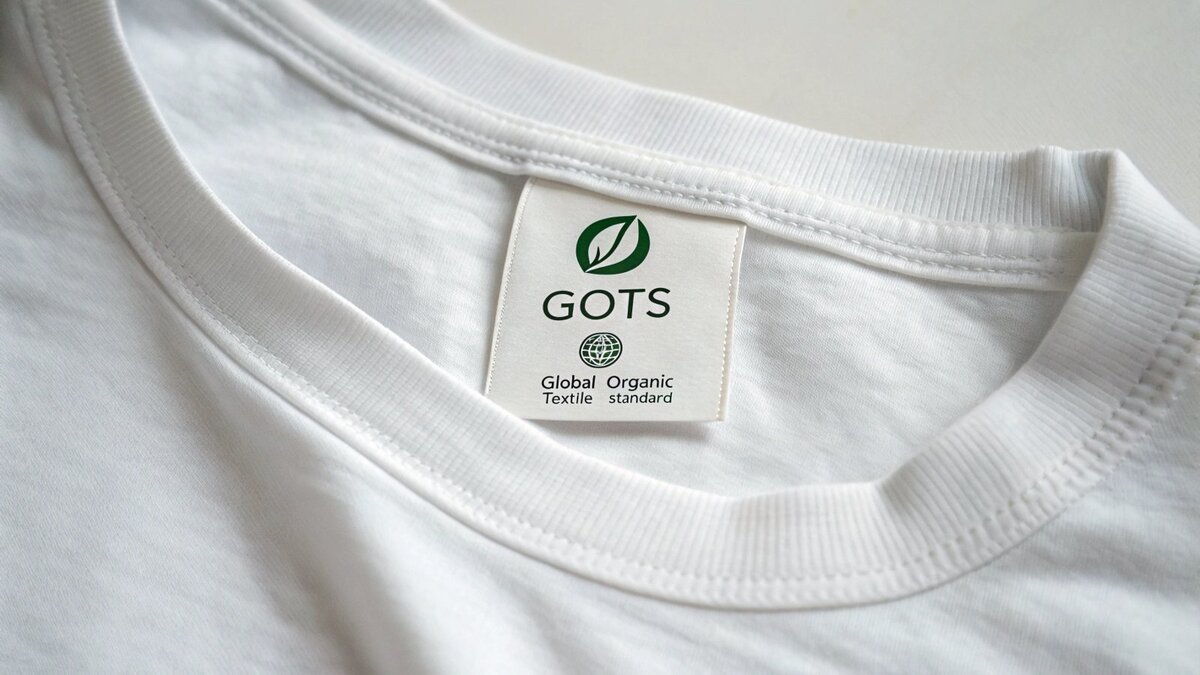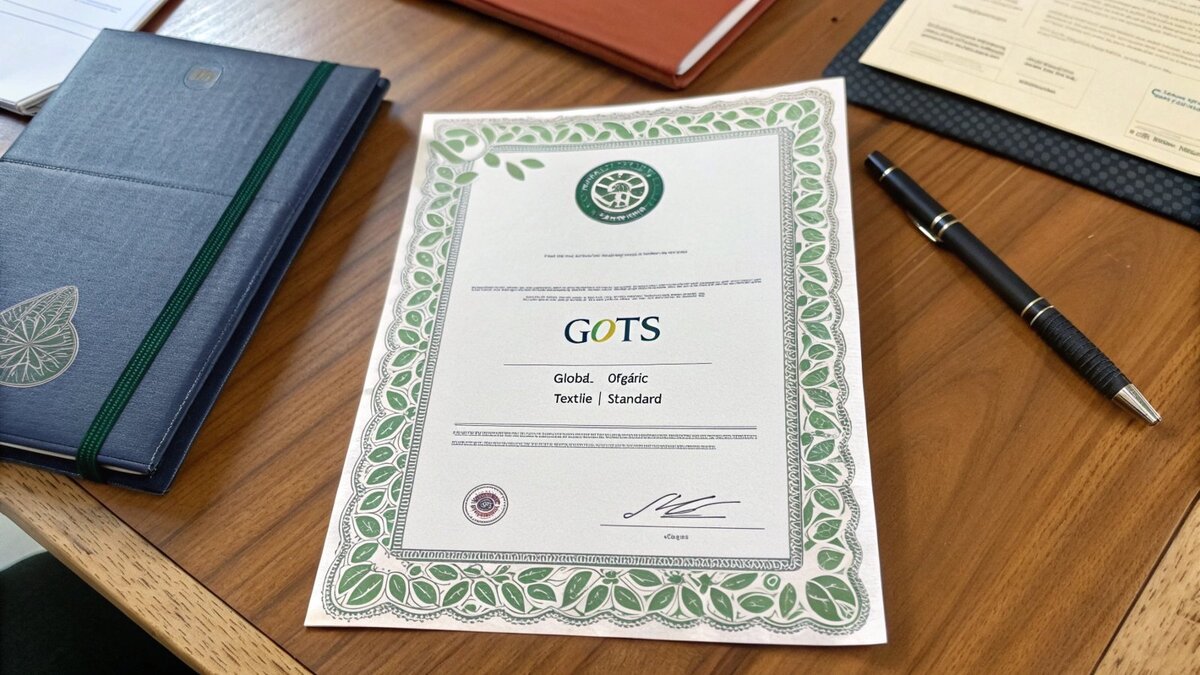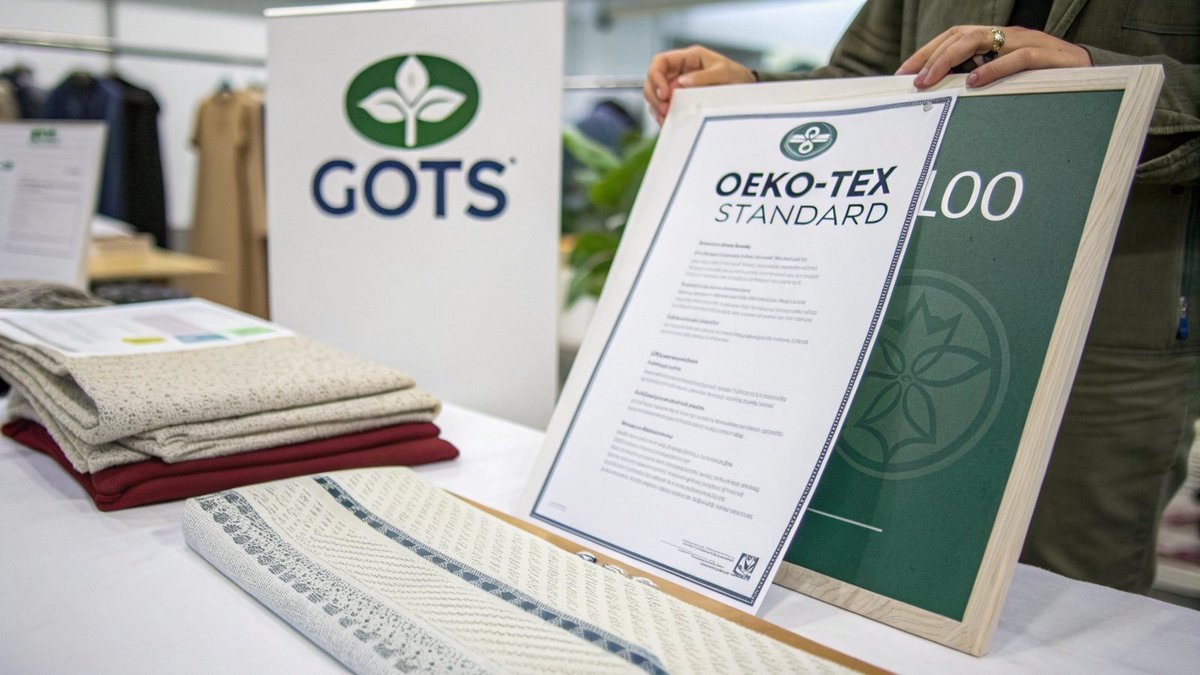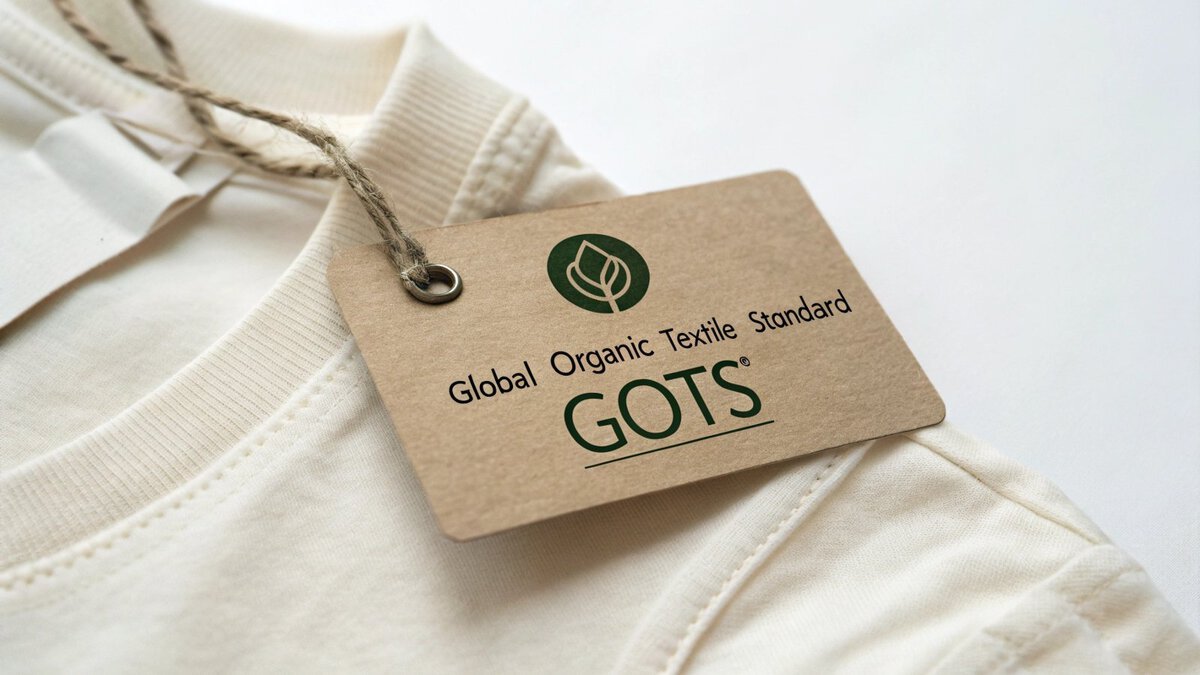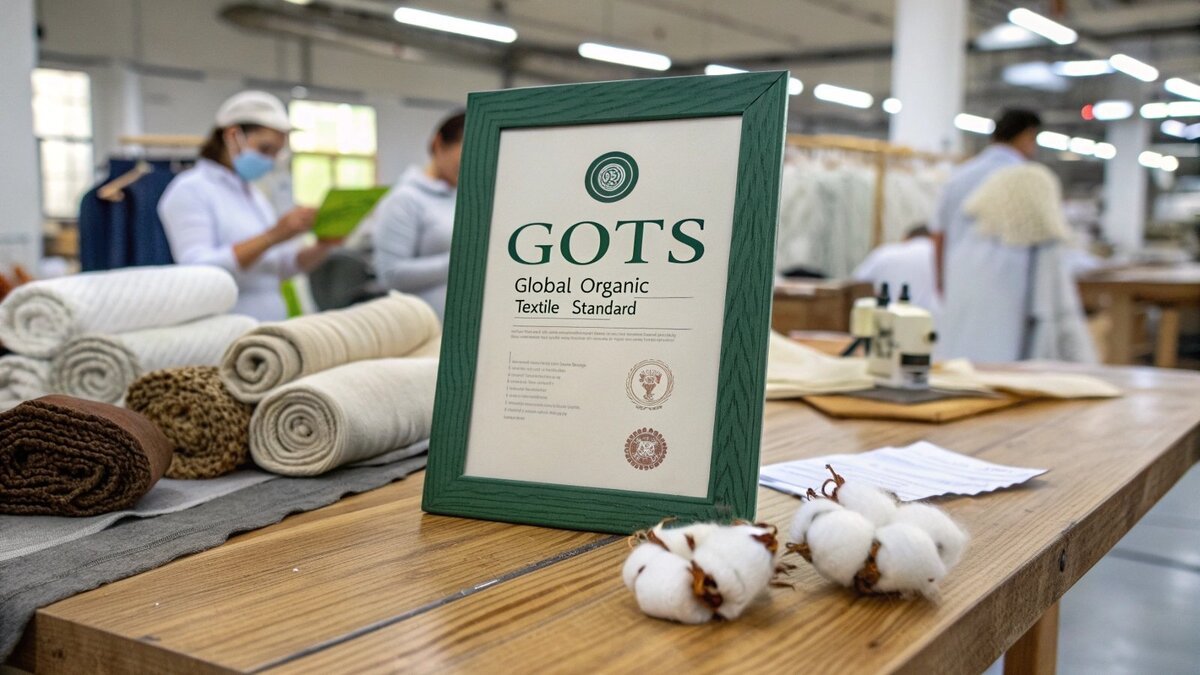Struggling to make sense of all the eco-friendly labels? It can be tough to know which certifications truly matter and which are just marketing noise. GOTS provides clear, reliable standards.
The Global Organic Textile Standard (GOTS) is the world’s leading certification for organic fibers. It ensures the entire process, from farming to the final product, meets strict environmental and social rules. This makes it a powerful mark of quality and trust for your brand.
Understanding these certifications isn’t just about ticking a box; it’s about building a brand that customers can believe in. In my years in the textile industry, I’ve seen how powerful a clear, trustworthy standard can be. It cuts through the confusion and gives your customers a solid reason to choose you. But what do all these acronyms actually mean for your business, and how do you decide which one is right for you? Let’s dive into the specifics of GOTS to see what it’s all about.
What is the meaning of GOTS?
You see the GOTS acronym on textile products everywhere. But what do those four letters actually mean for your product’s quality and your brand’s story? Understanding it is key.
GOTS stands for the Global Organic Textile Standard. It is a strict set of rules for the entire creation process of textiles made from organic fibers. It covers everything from harvesting and manufacturing to labeling, ensuring both environmental and social responsibility at every single step.
More Than Just Organic Fiber
When a product says "organic cotton," that often just refers to how the cotton was grown. GOTS goes much, much further. I’ve seen factories that use organic cotton but then process it with harsh chemicals, defeating the purpose. GOTS certification prevents this by auditing the entire journey from field to finished towel. It’s a holistic standard that guarantees integrity throughout the supply chain. This means the dyes are safe, the wastewater is treated, and the workers are respected. It provides a level of assurance that a simple "organic" claim cannot.
Here’s a simple breakdown of what GOTS covers:
| Criterion | What It Means for Your Towels |
|---|---|
| Organic Fibers | The raw material is grown without GMOs, toxic pesticides, or synthetic fertilizers. |
| Environmental Processing | The manufacturing process bans harmful chemicals like formaldehyde and heavy metals. |
| Social Criteria | Workers are treated ethically, with safe conditions and fair wages, and no child labor. |
| Traceability | Every step is documented and audited, so you can trust the final product is genuinely GOTS-compliant. |
Which is better, GOTS or OEKO-TEX?
GOTS and OEKO-TEX are two of the biggest names in textiles. Trying to figure out which one to prioritize for your brand and your customers can be very confusing.
GOTS is stricter and more comprehensive, covering the entire organic and ethical production process. In contrast, OEKO-TEX STANDARD 100 focuses only on testing the final product for harmful substances. So, GOTS is about the process, while OEKO-TEX is about end-product safety.
A Head-to-Head Comparison
I often get asked by clients, "Dylan, which one do I need?" My answer is always: it depends on the story you want to tell. Are you building a brand based on organic farming and ethical manufacturing? Then GOTS is your non-negotiable standard. Is your primary concern assuring customers that the towel they are about to use is completely safe and free from harmful chemicals? Then OEKO-TEX is a must-have.
Many top-tier brands, including those I work with at TowelTrend, don’t see it as an either/or choice. They use both. A towel can be made in a GOTS-certified facility using organic cotton, and that final product can then also be tested and certified under OEKO-TEX STANDARD 100. This offers the ultimate assurance of both process integrity and product safety.
Here’s how they stack up directly:
| Feature | GOTS | OEKO-TEX STANDARD 100 |
|---|---|---|
| Main Focus | The entire manufacturing process | Safety of the final product |
| Fiber Requirement | Minimum 70% certified organic fibers | Any fiber type, including synthetics |
| Scope | Environmental, social, and chemical rules | Testing for over 100 harmful substances |
| Best For | Brands built on organic and ethical values | A baseline safety guarantee for all products |
What does it mean to be GOTS certified?
You see the GOTS logo on a product label. But what guarantee does that little symbol actually give to you and your customers about the towel in their hands?
Being GOTS certified means the entire supply chain has been independently audited and verified. It guarantees the product contains at least 70% certified organic fibers and was made following strict environmental and social rules from farm to factory.
The Certification Journey
Getting a GOTS certificate isn’t a simple one-time check. It’s a rigorous, ongoing process. I’ve walked through GOTS-certified factories, and the difference is obvious. The air is cleaner, the systems are organized, and there is a clear paper trail for every single bale of cotton. The system is designed for total accountability, which is why it’s so trusted. The standard even has two different label grades you can use, depending on the composition of your product.
Here’s what gets checked during the audit:
- Fiber Sourcing: The raw cotton, for example, must come from a certified organic farm.
- Processing: All chemicals used, like dyes, must meet strict toxicity and biodegradability standards. No toxic heavy metals, formaldehyde, or GMOs are allowed.
- Wastewater Treatment: Every factory involved must have a functional wastewater treatment plant to prevent pollution.
- Social Compliance: All processors and manufacturers must meet social standards based on the key rules of the International Labour Organisation (ILO). This ensures fair wages, safe working conditions, and absolutely no child labor.
The two GOTS labels are:
- ‘Organic’: The product contains at least 95% certified organic fibers.
- ‘Made with organic’: The product contains 70-94% certified organic fibers.
Is GOTS certified worth it?
Gaining GOTS certification requires more time and money. Is this extra investment just for a fancy label, or does it actually deliver real value to your business and bottom line?
Yes, for most brands focused on sustainability, GOTS is absolutely worth it. It gives you a credible, verifiable marketing story that connects with conscious buyers. This builds brand trust, can justify a premium price, and opens doors to eco-focused markets.
Weighing the Costs and Benefits
I always advise my clients to think of GOTS not as a cost, but as an investment in their brand’s identity. If your target customer cares about sustainability, GOTS isn’t just a "nice to have"—it’s an essential part of your product’s value. For an initial test order of a few hundred towels, the added cost per unit is often minimal, but the marketing power you gain is immense. It immediately elevates your product from being just another towel to being a statement of quality and values. It’s a clear signal to your customers that you’ve done the hard work to create something truly better.
Here’s a look at the trade-offs:
| Aspect | Benefits (The ROI) | Considerations (The Investment) |
|---|---|---|
| Marketing | A powerful and trusted story of sustainability. | Requires clear communication to educate customers. |
| Price Point | Justifies a premium price for a superior product. | Sourcing and certification fees increase costs. |
| Market Access | Unlocks opportunities with eco-conscious retailers. | The supply chain can be more limited and complex. |
| Brand Trust | Builds deep customer loyalty and credibility. | Requires ongoing commitment to maintain standards. |
Conclusion
GOTS is far more than a label. It’s a complete standard for organic and ethical textiles that provides transparency. It offers your brand the trust that conscious consumers actively seek.

